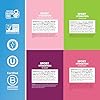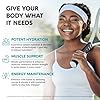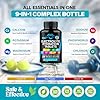Yesterday, Vladimir Putin put placed all of Russia’s nuclear armaments on high alert.
In response, the US government updated Ready.gov to include nuclear preparedness.
This article is reproduced from the U.S. website Ready.gov. This is new on their website. Many of you probably know that I worked in the emergency room for more than a decade. My comments are in parenthesis. I have included relevant links, which took time since the Amazon website is slow. I think they are swamped with orders. I made the mistake before of ordering too late. It won’t happen again.

Nuclear Explosion
Nuclear explosions can cause significant damage and casualties from blast, heat, and radiation. Still, you can keep your family safe by knowing what to do and being prepared if it occurs.
A nuclear weapon is a device that uses a nuclear reaction to create an explosion.
Nuclear devices range from a small portable device carried by an individual to a weapon carried by a missile. A nuclear explosion may occur with or without a few minutes’ warning.
(Radioactive) Fallout is most dangerous in the first few hours after the detonation when it gives off the highest radiation levels. It takes time for the fallout to arrive back to ground level, often more than 15 minutes for areas outside of the immediate blast damage zones. This is enough time for you to be able to prevent significant radiation exposure by following these simple steps:
GET INSIDE
- Get inside the nearest building to avoid radiation. Brick or concrete is best. (You should protect against gamma radiation. Gamma radiation destroys cell DNA)
- Remove contaminated clothing and wipe off or wash unprotected skin if you were outside after the fallout arrived. Hand sanitizer does not protect against fallout. Avoid touching your eyes, nose, and mouth, if possible. Do not use disinfectant wipes on your skin.
- Go to the basement or middle of the building. Stay away from the outer walls and roof. Try to maintain a distance of at least six feet between yourself and people not part of your household. If possible, wear a mask if you’re sheltering with people who are not a part of your household. Children under two years old, people who have trouble breathing, and those who cannot remove masks on their own should not wear them.
As an Amazon Associate, I earn from qualifying purchases.
STAY INSIDE
Stay inside for 24 hours unless local authorities provide other instructions. Continue to practice social distancing by wearing a mask and keeping a distance of at least six feet between yourself and people who are not part of your household. (Good luck with this. If you are concerned with infections, consider something to lavage your nose with, like povidone-iodine.)
- A better technique for nasal sprays
- Nasal Povidone-Iodine Works Great for the Prevention and Early Treatment of COVID-19!
- Nasal rinse and deep gargle stop viral respiratory infections in their tracks.
Family should stay where they are inside. Reunite later to avoid exposure to dangerous radiation.
Keep your pets inside.
(Radiation detectors like the GQ GMC-320 Plus Geiger Counter Nuclear Radiation Detector and a dosimeter) I suggest you get them now. Many are already unavailable.
STAY TUNED
Tune into any media available for official information, such as when it is safe to exit and where you should go.
Battery operated and hand-crank radios will function after a nuclear detonation.
Cell phone, text messaging, television, and internet services may be disrupted or unavailable.
(Protect your electronics with a Faraday bag. If you are handy with a sewing machine, you can get a Faraday fabric and make your own Faraday cage.
HOW TO STAY SAFE IN THE EVENT OF A NUCLEAR EXPLOSION
Prepare NOW
Identify shelter locations. Identify the best shelter location near where you spend a lot of time, such as home, work, and school. The best sites are underground and in the middle of larger buildings.
While commuting, identify appropriate shelters to seek in the event of a detonation. Due to COVID-19, many places you may pass on the way to and from work may be closed or may not have regular operating hours.
Outdoor areas, vehicles, mobile homes do NOT provide adequate shelter. Look for basements or the center of large multistory buildings.
Ensure you have an Emergency Supply Kit for places you frequent and might have to stay for 24 hours. It should include bottled water, packaged foods, emergency medicines, a hand-crank or battery-powered radio (better is a multi-power – solar, hand crank, battery-powered radio) to get information in case power is out a flashlight and extra batteries for essential items. If possible, store supplies for three or more days.
If you can, set aside items like soap, hand sanitizer that contains at least 60 percent alcohol, disinfecting wipes, and general household cleaning supplies that you can use to disinfect surfaces you touch regularly. After a flood, you may not have access to these supplies for days or even weeks. Keep in mind each person’s specific needs, including medication. Don’t forget the needs of pets.
Obtain extra AAA and A.A. batteries (Amazon batteries don’t hold a charge for long) and charging devices for phones and other critical equipment. (Better to have Ni-MH rechargeable A.A. and AAA batteries with chargers that can handle several batteries at a time)
Being prepared allows you to avoid unnecessary excursions and address minor medical issues at home, alleviating the burden on urgent care centers and hospitals. (minor cuts can lead to life-threatening infections be sure you know how to clean wounds and have the following: nitrile gloves don’t tear easily, topical antibiotics Angels Colloidal silver gel, different size gauzes like 2×2 and 4×4, [you don’t want to use a big one for a small cut] and medical tape. I like this skin cleanser spray because the focused stream can easily remove debris and save the amount of cleanser. If there is dirt on the wound, it won’t heal)
Remember that not everyone can afford to respond by stocking up on necessities. Making essential purchases and slowly building up supplies in advance will allow for more extended time periods between shopping trips for those who can afford it. This helps protect those who cannot procure essentials in advance of the pandemic and must shop more frequently. In addition, consider avoiding (Women, Infants, and Children) WIC-labeled products so that those who rely on these products can access them.
Survive DURING Nuclear Explosion
If warned of an imminent attack, immediately get inside the nearest building and move away from windows. This will help protect from the blast, heat, and radiation of the detonation.
When you have reached a safe place, try to maintain a distance of at least six feet between yourself and people who are not part of your household. If possible, wear a mask if you’re sheltering with people who are not a part of your household. Children under two years old, people who have trouble breathing, and those who cannot remove masks on their own should not wear them. (In a tense situation after a nuclear blast with widespread panic and crowded shelters, be prepared to get punched in the face if you tell someone to social distance.)
If you are outdoors when a detonation occurs, take cover from the blast behind anything that might offer protection. Lie face down to protect exposed skin from the heat and flying debris. Avoid touching your eyes, nose, and mouth, if possible. If you are in a vehicle, stop safely, and duck down within the car.
(Don’t look at the blast! Especially at night since it can burn your retina and lead to flash blindness. Sheltering under a bridge or inside a large culvert (better) are places to consider to shield from the blast effect). Blast injuries are nothing to scoff at.)
After the shock wave passes, get inside the nearest, best shelter location for protection from potential (radioactive) fallout. You will have 10 minutes or more to find an adequate shelter. (If you can go to a building with several basements, go to the lowest part for more protection against the gamma radiation)
Be inside before the fallout arrives. The highest outdoor radiation levels from fallout occur immediately after the fallout comes and then decrease with time.
Stay tuned for updated instructions from emergency response officials. If advised to evacuate, listen for information about routes, shelters, and procedures.
If you have evacuated, do not return until you are told local officials it is safe to do so.
- Make plans to stay with friends or family in case of evacuation. Keep in mind that public shelter locations may have changed due to COVID-19. Check with local authorities to determine which public shelters are open.
- If you are told by authorities to evacuate to a public shelter, try to bring items that can help protect yourself and your family from COVID-19, such as hand sanitizer that contains at least 60 percent alcohol, cleaning materials, and two masks per person. Children under two years old, people who have trouble breathing, and people who cannot remove masks on their own should not wear them.
- Review the CDC’s guidelines for “Going to a Public Disaster Shelter During the COVID-19 Pandemic.”
Be Safe AFTER
Immediately after you are inside a shelter, if you may have been outside after the fallout arrived.
Remove your outer layer of contaminated clothing to remove fallout and radiation from your body. Avoid touching your eyes, nose, and mouth, if possible. (You don’t want to inhale the radioactive dust)
Take a shower or wash with soap and water to remove fallout from any skin or hair that was not covered. If you cannot flush or shower, use a wipe or clean wet cloth to wipe any skin or hair that was not covered. Hand sanitizer does not protect against fallout. Avoid touching your eyes, nose, and mouth, if possible. Do not use disinfectant wipes on your skin.
Clean any pets that were outside after the fallout arrived. Gently brush your pet’s coat to remove any fallout particles and wash your pet with soap and water, if available.
It is safe to eat or drink packaged food items or items inside a building. Do not consume food or liquids from the outdoors that were uncovered and may be contaminated by fallout.
If you are sick or injured, listen for instructions on how and where to get medical attention when authorities tell you it is safe to exit. If you are ill and need medical attention, contact your healthcare provider for instructions. If you are at a public shelter, immediately notify the staff at that facility so they can call a local hospital or clinic.
If you are experiencing a medical emergency, call 9-1-1 and let the operator know if you have, or think you might have, COVID-19. If you can, put on a mask before help arrives. (Yeah, I know it’s crazy)
(I won’t count on the paramedics to come right away and don’t even think that someone will answer your 911 call. First responders have a family too and that is their priority. If you are lucky to get to the emergency room that will be far away from the blast, be ready to wait for hours or days before you are seen because they will be short-staffed.
Engage virtually with your community through video and phone calls. Know that it’s normal to feel anxious or stressed. Take care of your body and talk to someone if you are feeling upset. Many people may already feel fear and anxiety about the coronavirus 2019 (COVID-19). The threat of a nuclear explosion can add additional stress. Follow CDC guidance for managing stress during a traumatic event and managing stress during COVID-19.
- Bright FLASH can cause temporary blindness for less than a minute.
- BLAST WAVE can cause death, injury, and damage to structures several miles out from the blast.
- RADIATION can damage cells of the body. Large exposures can cause radiation sickness.
- FIRE AND HEAT can cause death, burn injuries, and damage structures several miles out.
- ELECTROMAGNETIC PULSE (EMP) can damage electrical power equipment and electronics several miles out from the detonation and cause temporary disruptions further out.
- FALLOUT is radioactive, visible dirt and debris raining down from several miles up that can cause sickness to those outside.
Associated Content
- Nuclear Detonation Safety: Food, Drinking Water and Medicine (PDF)
- Nuclear Explosion Information Sheet (PDF)
- Download the FEMA app
- Centers for Disease Control
- Get inside, Stay inside, Stay Tuned Video (English)
- Get inside, Stay inside, Stay Tuned Video (Spanish)
- U.S. Environmental Protection Agency
- Coronavirus (Federal Government Response)
- Keeping Children Healthy During the COVID-19 Outbreak
Last Updated by Ready.gov: 02/25/2022
Don’t Get Sick!
Stay current by subscribing. Feel free to share and like.
Click on some ads for website revenue. If you find value in the articles, please consider donating to show your support.
Related:
- We are now at DEFCON 3
- US government issues guide on how to prepare for a nuclear explosion
- Pentagon Bio-laboratories in Ukraine
- War begins. Be ready for anything
- Are You Ready for High-Intensity Life Situations?
© 2018 – 2022 Asclepiades Medicine, L.L.C. All Rights Reserved
DrJesseSantiano.com does not provide medical advice, diagnosis, or treatment
Nuun Sport Electrolyte Tablets for Proactive Hydration, Mixed Flavors, 4 Pack (40 Servings)
21% OffNuun Hydration Strawberry Lemonade, 10 Tablets
Discover more from Don't Get Sick!
Subscribe to get the latest posts sent to your email.





























